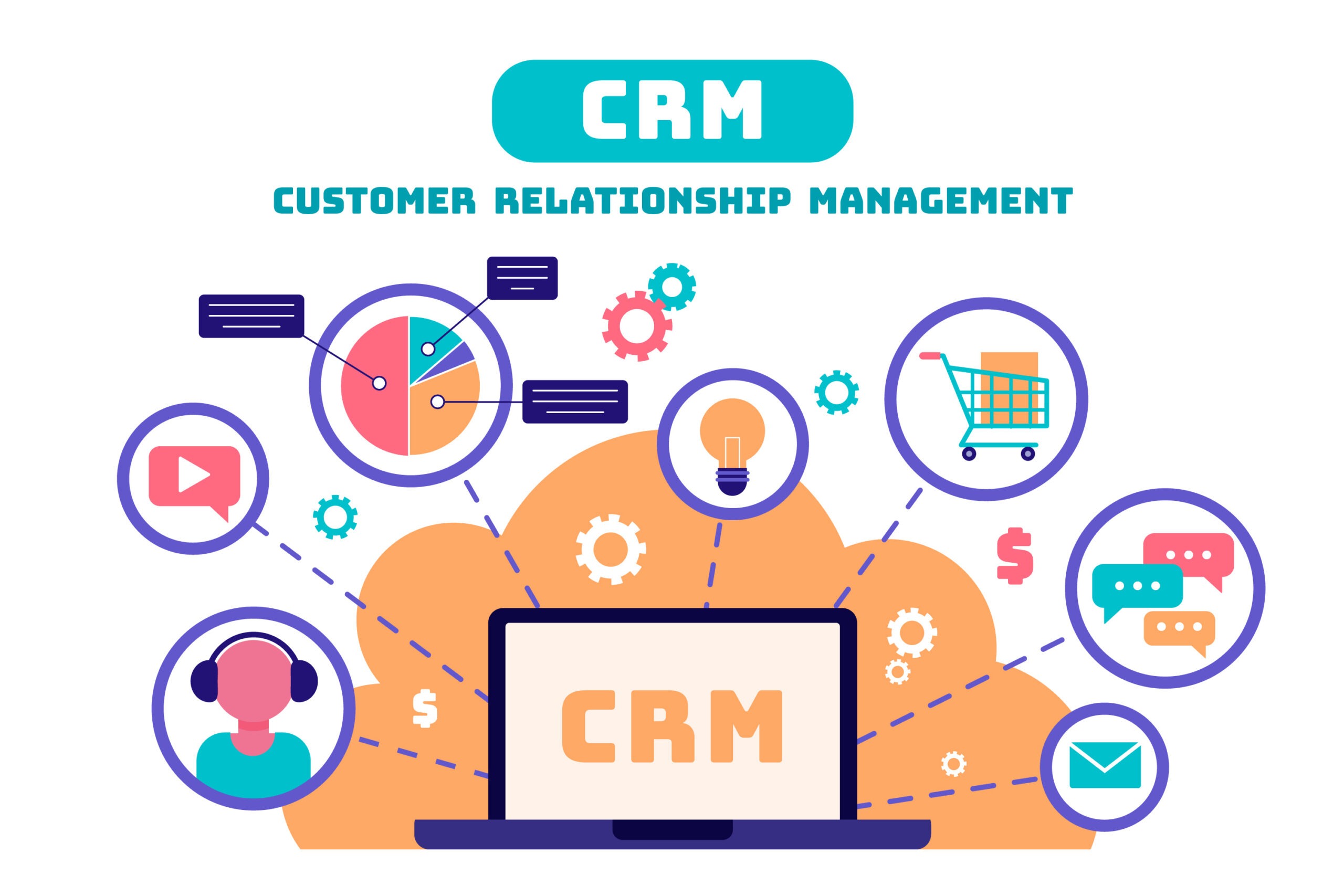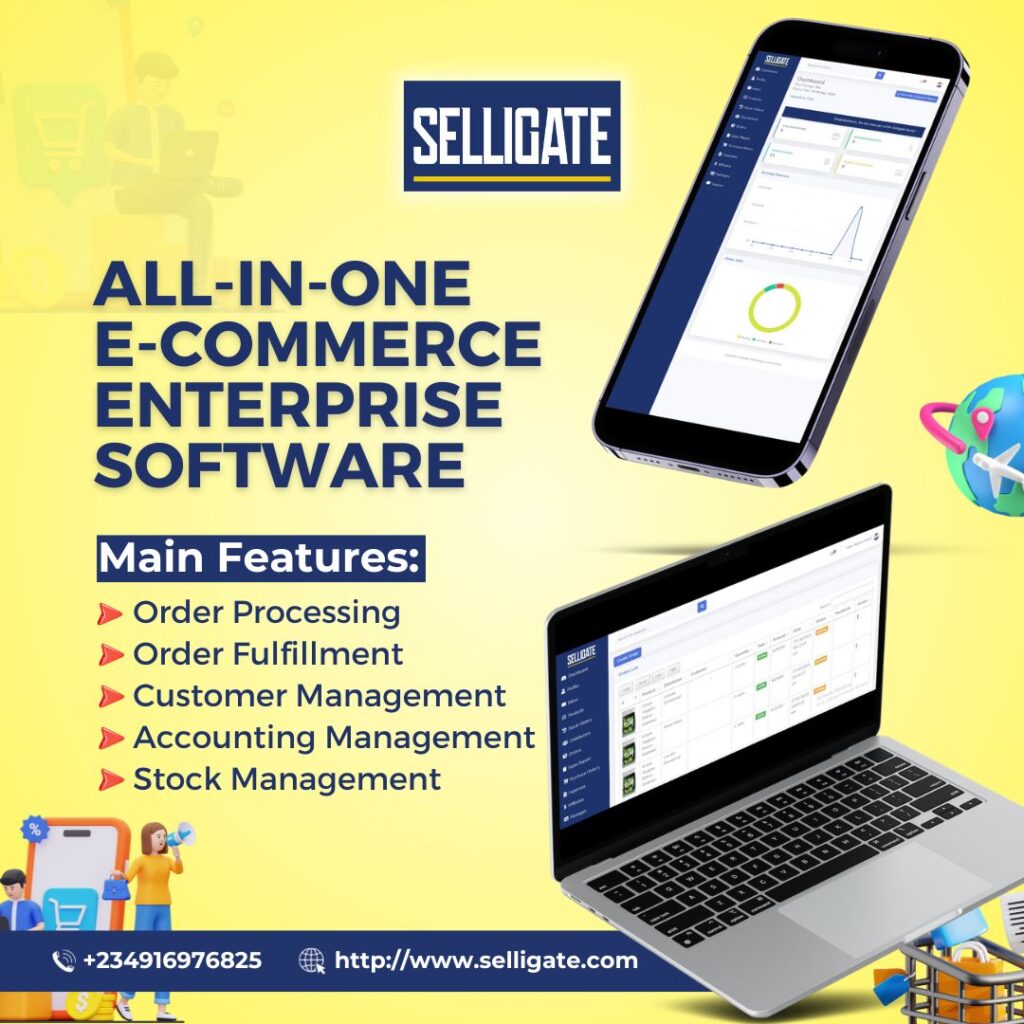
Many e-commerce businesses still rely on manual processes for order management, which can lead to errors, delays, and customer dissatisfaction.
However, a CRM order management system (CRM OMS) can help e-commerce businesses automate the order management process and improve their overall performance.
CRM Order Management Software can be used by businesses of all sizes, from small businesses to large enterprises. It is especially beneficial for businesses that sell products online, as it can help you automate the order fulfillment process and improve customer service.
What is a CRM Order Management Software?
Customer Relationship Management Order Management Software (CRM OMS) helps businesses manage their customer relationships (CRM) and order management processes. It integrates CRM data with order management data to provide a complete view of the customer journey. This allows businesses to improve their customer service, reduce costs, and increase efficiency.
Why is a CRM Order Management System important for E-commerce Businesses?
To appreciate why a CRM Order Management System is important for e-commerce businesses, we need to understand the problems e-commerce businesses face as regards order management and order fulfillment.
Here are 5 major problems e-commerce businesses face:
1. Customer Acquisition and Retention
It is becoming increasingly difficult to acquire and retain customers in the competitive e-commerce landscape. Customers have access to a wide range of products and services from different retailers, and they are more likely to switch retailers if they are not satisfied with the customer experience.
2. Inventory Management
E-commerce businesses need to be able to accurately track inventory levels across all sales channels to fulfill orders on time and avoid stockouts. This can be challenging, especially for businesses that sell a wide variety of products or have multiple sales channels.
3. Order Management
The order management process can be complex and time-consuming, especially for businesses that fulfill orders from multiple warehouses. E-commerce businesses need to be able to efficiently pick, pack, and ship orders to meet customer expectations.
4. Shipping and Logistics
Shipping and logistics can be a major cost driver for e-commerce businesses. 30% of ecommerce businesses lose money due to delivery failures per year.
This can be due to several factors, such as lost or stolen packages, incorrect addresses, and shipping delays. E-commerce businesses need to be able to negotiate competitive shipping rates and provide customers with a variety of shipping options.
5. Payment Processing
E-commerce businesses need to provide customers with a variety of payment options and ensure that their payment processing system is secure. E-commerce businesses also need to be able to manage fraud and chargebacks.
Combining all these above problems, there is a need for e-commerce businesses to adopt an effective order management system to make profits.
Nucleus Research explains that 56% of businesses said that CRM order management software has improved their customer satisfaction, while Forrester claims 70% of businesses said that CRM order management software has helped them to reduce their order fulfillment costs.
Therefore, let’s see the benefits of CRM Order Management Software for e-commerce businesses.
7 Benefits of CRM Order Management Software for E-commerce Businesses
1. Improved Customer Experience
CRM Order Management software can help e-commerce businesses communicate with customers about the status of their orders. This can help to improve customer satisfaction and reduce customer inquiries.
Also, CRM software can be used to track customer purchase history and preferences, which can then be used to recommend products and offer targeted discounts.
Furthermore, CRM software can also be used to automate customer support tasks, such as responding to inquiries and resolving issues.
2. Increased Sales
CRM order management software can help businesses increase sales by streamlining the order fulfillment process and making it easier for customers to complete their purchases.
For example, CRM Order Management software can be used to automate the shipping process and provide customers with real-time tracking updates.
CRM software can also be used to identify and target high-value customers with special offers and promotions.

For example, Selligate helped Injina Nigeria Limited increase its monthly sales revenue by 280% within 3 months.
3. Reduced Costs
CRM order management software can help businesses to reduce costs by automating manual tasks and eliminating errors.
For example, CRM software can be used to automate the order entry and fulfillment process, which can save businesses time and money.
4. Increased Efficiency
CRM order management software can help businesses increase efficiency by streamlining their operations and improving communication between departments.
For example, CRM software can be used to integrate the order fulfillment process with other business systems, such as inventory management and customer relationship management (CRM) systems.
This can help to eliminate duplicate data entry and improve the overall efficiency of the business.
5. Improved Decision-making
CRM order management Software can provide businesses with valuable insights into their customers and their order fulfillment process.
This information can be used to make better decisions about product development, marketing, and sales strategies.
For example, CRM order management software can be used to identify popular products, trends in customer behavior, and areas where the order fulfillment process can be improved.
6. Scalability
CRM order management software is scalable, which means that it can grow with your business.
As your business grows, you can add new users to your CRM system to meet your changing needs. This can help you to avoid the need to invest in new software systems as your business grows.
7. Security
A CRM order management software is typically hosted in secure cloud-based environments, which means that your data is protected from unauthorized access and loss.
This is important for e-commerce businesses, which need to protect sensitive customer data, such as phone numbers, emails, and addresses.
Once you have chosen a CRM order management software, be sure to properly train your team on how to use it. This will help you to get the most out of your software and to improve your order management and order fulfillment process.

